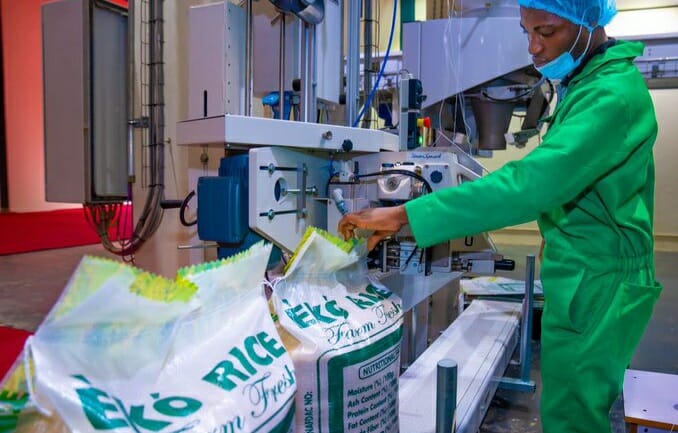The Lagos Chamber of Commerce and Industry (LCCI) has implored the finance development institutions to support rice farmers in the state.
This was contained in a statement released on Tuesday by the LCCI.
According to the chamber, the support would enable fannrmers scale up to meet local demand.
The chamber, making reference to the recently inaugurated projects in Lagos state, said it was “more concerned with the economic impact” of the facility.
According to LCCI, the federal government needs to be sensitive to the massive private investments and be more intentional in creating a stable policy environment.
However, it added that the commissioning of the Lekki deep sea port, Lagos rice mill at Imota, the 18.75killometres Eleko-Epe rigid pavement six-lane expressway, the first phase of the blue line rail, and the John Randle centre for Yoruba culture and history, was a significant factor in driving development in the state.
“With infrastructure remaining a critical driver of growth and development, the Lekki deep seaport, Nigeria’s largest seaport with a draught of 16.5m, will support trade and commerce in Nigeria and the entire West African region,” Chinyere Almona, director-general, LCCI, said.
“The 32-metric tonnes per hour Lagos rice mill at Imota-Ikorodu was also launched to produce rice for Lagos residents and possibly for export. The intent to ease transportation in Lagos led to the conceptualisation and eventual launch of the Lagos blue line rail project.
“This project is part of fulfilling the request for a multi-modal transport system in Lagos to ease the traffic jams experienced by Lagos residents. To maximise the benefits of these infrastructures and facilities, there must be a connecting rail network that supports the movement of goods and persons to fully facilitate trade and commerce within the state and across the West African borders.
“With this connection, ‘Eko rice’ can easily move into the West African market to explore the benefits of the African Continental Free Trade Area (AfCFTA). With access to the African market, farmers in Lagos are encouraged to commit more investments into rice production, create more jobs, and provide more rice to beat the rising price of the product.”
The chamber further commended the state government for its efforts to provide infrastructure, adding that the projects will positively impact the economy, and grow the gross domestic product (GDP) of the state and that of the country.
“We urge finance development institutions to support rice farmers in Lagos to scale up their production capacity to meet local demand,” it added.
In addition, LCCI encouraged other state governments to provide the needed infrastructure to spur economic activities and growth in their states.
“We also call on the federal government to be sensitive to the massive private investments in various states and be more intentional in creating a stable policy environment. Policy summersault has remained one of the most damaging factors to investors’ confidence,” it said.
